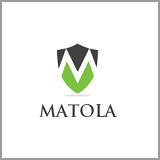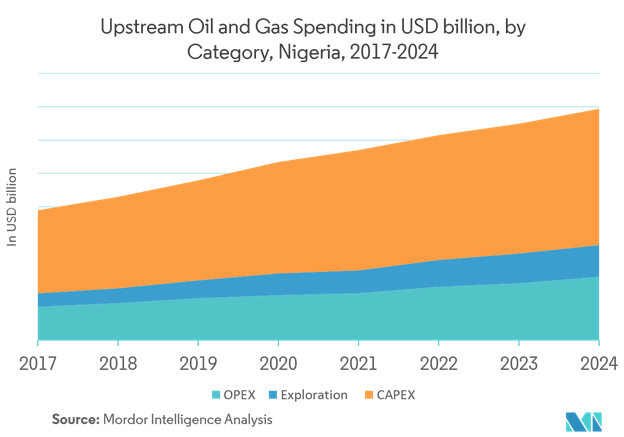.blog-menu-desktop ul {
background-color: #F1F1F1 !important;
width: fit-content;
float:right;
}
.blog-menu-desktop li {
display:inline-block;
font-weight: 600;
padding:0 15px;
vertical-align:text-top;
}
.blog-menu-desktop li a {
color:#000000;
}
.blog-menu-desktop li a:hover {
color:#E00519;
background-color: #F1F1F1;
}
.selected_category {
color:#E00519 !important;
}
.separator-border {
border-left:2px solid #000;
height:15px;
display:inline-block;
}
#misterworker-blog-menu .btn-primary:hover{
background-color: #e00819;
}
#misterworker-blog-menu-content ul {
background-color: #e00819;
padding: 10px 20px !important;
}
#misterworker-blog-menu-content ul > li {
margin-bottom:5px;
}
#misterworker-blog-menu-content ul > li > a {
color: #fff;
}
#misterworker-blog-menu-content ul > li > a:hover {
background-color: #e00819;
}
The Oil & Gas Market in Nigeria – Interview with Matola International Concept
Published :
03/10/2020 15:57:06
Categories :
Mister Worker
, Mister Worker™'s news
Today on the Mister Worker™ Blog we talk about trends in the Oil & Gas market in Nigeria, the largest oil and gas producer in Africa, with Matola International Concept, a Nigerian leading servicing company.

What is Matola Concept and what do you do?
We are an indigenous based servicing company involved in the delivering of cost-effective and quality services in Oil and Gas sector, construction and marine sector of our economy. With a track record in quality service delivery in the above areas of specialization which place us amongst leading servicing companies in Nigeria.
Our Services include:
- OCTG Pipes Supply
- Procurement
- Logistics (Marine & Land)
- Engineering Construction
- Human Capital Development and Training
- Manpower Supply
- Heavy Duty Equipment Supply, Maintenance and Installation.
Can you give us an overview of the Nigerian market for the Oil & Gas industry?
What are the key players and what products and services do they need?
Nigeria is one of the largest and oldest oil producers in Africa. The oil and gas sector is one of the most important sectors in the country’s economy, accounting for more than 90% of the country’s exports and 80% of the Federal Government’s revenue.
As of 2017, Nigeria has the largest oil and gas reserves in the African region, with around 37 billion barrels of oil and 47.2 billion cubic meter (bcm) of gas. With a production of 2.32 million barrels per day in 2019, the largest in Africa, amounting to approximately 24% of the total production in Africa and also the sixth largest in the world. Nigeria continues to dominate the African oil production.

The country’s economy was hit hard by the global commodity price downswing in 2014. Investment in the Nigerian upstream oil and gas sector declined by 13% annually, during 2015-2017, due to the downturn in the crude oil price but improved in 2019. The decline in spending was largest in 2016, driven by severe disruptions on major oilfields. Oil and condensate production recovered in 2019, and was estimated to remain at the level of 2.32 million bbl/d in 2020.
The drilling activity in the country is ramping up, and is expected to continue on account of current and upcoming projects. However, production is not expected to ramp up in the coming years, as the new projects that are expected to come online may be able to offset the declining volume from brownfields, keeping the oil supply stable, provided the international political situation does not exacerbate, leading to renewed supply disruption.
Development of ultra-deepwater Egina oilfield by Total is one of the key projects, which started production in the first week of 2019. The Egina field may significantly boost the production and cash flow in 2020, and continue onward. Further, NNPC (Nigeria National Petroleum Corporation) has signed an agreement for seven Critical Gas Development Projects, to deliver around 3.4 bcf of gas per day, in order to bridge the medium-term supply gap, this year 2020, on an accelerated basis.
You are a member of OGTAN association.
Can you tell us about OGTAN and the main activities you are implementing within the association?
OGTAN is the independent umbrella Group of Training Services Providers in the Oil and Gas Sector. It was established by the act of parliament, Nigerian Content Development and Monitoring Board act, in 2010, representing the Education and Training Sectorial Group of the Nigerian Content Consultative Forum (NCCF) under Section 58 of the NOGICD Act (2010) with the purpose to build local human capital capacity in the Nigerian Oil and Gas industry and act as a business group that interfaces with Operators, International Organizations and the Nigerian government.
OGTAN is currently bridging the gap between academia and industry requirement by providing training for Nigerian based on industry requirement. We are also making efforts to domesticate training in Nigeria by enhancing the quality of the training render by our members.
What’s the potential of the online segment for the Oil & Gas industry in Africa? Is it growing? Are there any differences with other international markets?
In my opinion it is growing. The online segment of oil and gas industries in Africa rely on industrial control systems and the Internet of Things (IoT) to maintain safe and reliable operations, and that’s unlikely to change.
Increasing online connectivity has the potential to drive value creation by deploying data and analytics to find new markets, improve operational performance, and streamline the supply chain, oilfield, pipeline, or refinery. It’s equally vulnerable to cyber threats. BBC report last describe Nigeria and indeed Africa as internet business destination.
There is no significant difference between online segment for the Oil and Gas industry in Africa and international market space. Oil and Gas space is a big interconnected environment.
Based on your experience, what would you suggest to young African talents to have success in this industry in a future in which clean energy and environmental protection will be key to save our planet? What do Oil & Gas companies need to do to preserve the planet and at the same time keep growing?
Globally, the focus is on clean energy and African Oil and Gas companies are also working in this light. To achieve this plan, we must digitalize our tools and equipment. We must think of new ways of doing our business without impacting negatively on our environment.
The young African talents must think in this direction. They must build the capacity and skills required in this digital economy.


